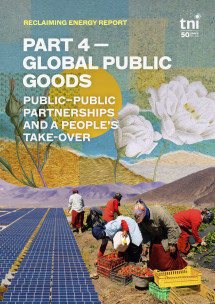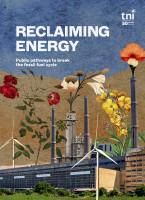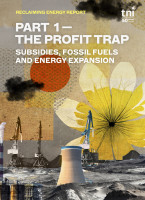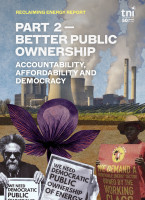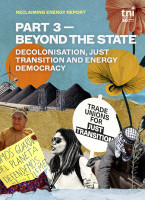Part 4 of the report illustrates the cause for optimism around possibilities for systemically reclaiming energy.
We begin by discussing the importance of public–public partnerships (PuPs), which see public institutions collaborating with each other to build skills, expertise and capacity for energy transition leadership. PuPs are emerging as a popular solidarity-based alternative to profit-driven public–private partnerships. They can take many forms, from public banks that finance public renewables through to associations of public bodies that collaborate to own and operate electricity utilities or to engage in peer-learning schemes to share transition skills. Instead of using public funds for private gain, PuPs create opportunities to treat energy as a global public good: a common good available to all, for everyone’s benefit. Cementing this understanding of energy across the world could ensure all aspects of the energy system centre justice.
PuPs can be combined with direct public procurement. This entails contracting a private company with the explicit purpose of building up public energy skills, assets, and technologies — for example, by transferring ownership and man- agement of an energy asset to public hands upon completion of the contract. The hopeful expansion of pro-public energy struggles across the world demon- strates that there is ample potential for PuPs to take off and multiply. This final part of the report ends by documenting a number of these struggles, showing that another energy system — led by and for ‘the public’ — really is possible.
